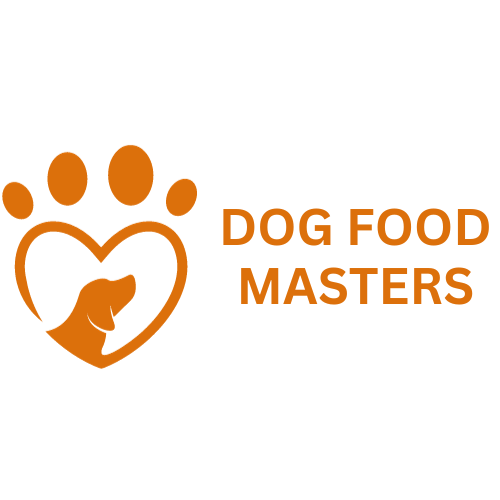Just like humans, dogs need a balanced diet to stay healthy and active. Meeting your dog’s nutritional needs is essential for their overall well-being, energy levels, and longevity. But with so many different types of food available, from kibble to raw diets, it can be tricky to know exactly what your dog requires to thrive.
In this guide, we’ll break down the core nutritional requirements for dogs and why each element is important for their health.
Core Nutritional Components for Dogs
1. Protein
Proteins are the building blocks of your dog’s body, responsible for muscle growth, tissue repair, and overall health. Dogs are omnivores but rely heavily on protein from animal sources (like chicken, beef, or fish).
- Why It’s Important: Proteins supply essential amino acids that dogs cannot produce on their own. These amino acids support everything from a strong immune system to healthy skin and nails.
- How Much They Need: Adult dogs generally need a diet that is 18-25% protein, while puppies and active dogs may need higher levels.
Sources: Chicken, turkey, beef, lamb, fish, and eggs are excellent protein sources.
2. Fats
Fats are a critical energy source for dogs, providing more than double the calories per gram compared to proteins or carbohydrates. They are also essential for the absorption of fat-soluble vitamins and contribute to a shiny coat and healthy skin.
- Why It’s Important: Fats help maintain cell structure, enhance the flavor of food, and are a major source of omega fatty acids (like Omega-3 and Omega-6), which support brain health and reduce inflammation.
- How Much They Need: A balanced diet should have 10-15% fat for adult dogs, but puppies and highly active dogs may require more.
Sources: Chicken fat, fish oil, flaxseed oil, and animal fats.
3. Carbohydrates
While not as critical as proteins and fats, carbohydrates provide a key source of energy and fiber for dogs. Carbs also aid in digestion and are important for gut health.
- Why It’s Important: Carbs supply energy and fiber, which helps maintain a healthy digestive system and can prevent constipation.
- How Much They Need: There is no minimum carbohydrate requirement for dogs, but 30-70% of their diet may be made up of healthy, digestible carbohydrates.
Sources: Whole grains (brown rice, oats), sweet potatoes, peas, and barley.
4. Vitamins
Vitamins are crucial for many bodily functions, including immune support, bone development, and maintaining skin and eye health.
- Key Vitamins:
- Vitamin A: Supports vision and skin health.
- Vitamin D: Helps with calcium absorption for strong bones.
- Vitamin E: Acts as an antioxidant to fight free radicals.
- B-Vitamins: Aid metabolism and energy production.
- Vitamin K: Essential for blood clotting.
Vitamins are often present in balanced dog food, but you may need supplements in certain cases (like Vitamin D for dogs who don’t get much sunlight).
5. Minerals
Minerals play a role in everything from bone health to nervous system function. Dogs need two types of minerals:
- Macrominerals: Like calcium, phosphorus, and magnesium, which are important for bones and teeth.
- Microminerals (Trace Minerals): Like iron, copper, and zinc, which support enzyme function, blood production, and skin health.
How Much They Need: The amount of minerals required varies by dog size, age, and activity level, but they should always be part of a well-rounded diet.
6. Water
Though often overlooked, water is the most important nutrient for dogs. It’s essential for nearly all bodily functions, including digestion, temperature regulation, and waste elimination.
- Why It’s Important: Dogs need plenty of water to stay hydrated, particularly if they are eating dry food or have increased activity levels.
- How Much They Need: Dogs need approximately 1 ounce of water per pound of body weight daily, but this varies depending on their diet, activity, and environment.
Special Considerations
Life Stage
- Puppies need more calories and nutrients, particularly protein and fat, to support their rapid growth.
- Senior Dogs may require fewer calories but more joint support nutrients like glucosamine and chondroitin.
- Pregnant or Nursing Dogs also need additional nutrients and higher calorie content to support both themselves and their puppies.
Breed-Specific Needs
Some breeds may have specific dietary requirements. For example, large breeds may benefit from foods with added joint support, while small breeds may require calorie-dense foods to keep their energy levels up.
Allergies and Sensitivities
Some dogs are sensitive to common ingredients like grains, chicken, or dairy. In these cases, grain-free or hypoallergenic dog foods may be necessary to prevent allergic reactions or digestive issues.
Conclusion: Balancing Your Dog’s Diet
Providing your dog with a balanced and nutritious diet is one of the best ways to ensure they live a long, healthy life. The right balance of protein, fat, carbohydrates, vitamins, and minerals can keep your dog feeling energetic and strong. Remember to always consult with your veterinarian to ensure your dog’s diet meets their unique needs.
By following these guidelines and selecting quality dog food that fits your dog’s life stage, breed, and activity level, you can give your furry friend the nutrients they need to thrive!


